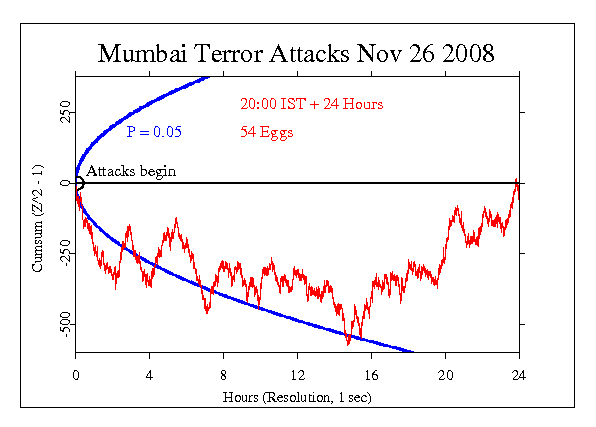|
A distributed terrorist attack
began at about 10 PM local time in Mumbai, India, on
November 26, 2008.
The rampage ended after 60 hours, with hundreds dead or
injured, and Mumbai's major centers and hotels including the Taj Mahal
and the Oberoi in shambles.
Yahoo News reported that "It took just 10 young men armed with
rifles and grenades to terrorize this city of 18 million and
turn its postcard-perfect icons into battlefields until
security forces ended one of the deadliest attacks in
India's history early Saturday.
"The bloody rampage carried out by suspected Muslim militants
at 10 sites across Mumbai, the nation's financial capital
formerly known as Bombay, killed at least 195 people and
wounded 295. Among the dead were 18 foreigners, including
six Americans."
Although the standoff of security forces and terrorists
continued for nearly three days,
the GCP event was set for the 24 hours beginning at the time
of the attacks. The data show a sharp drop for about two
hours, which levels off and after about 14 hours assumes a
positive trend with culmination at almost zero
deviation. Chisquare is 86342.911 on 86400 df, for p = 0.554
and Z = -0.136.

It is important to keep in mind that we have only a tiny
statistical
effect, so that it is always hard to distinguish signal from
noise. This means that every "success" might be largely
driven by chance, and every "null" might include a real
signal overwhelmed by noise. In the long run, a real effect
can
be identified only by patiently accumulating replications of
similar analyses.
|